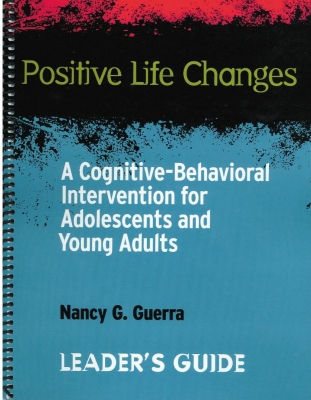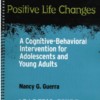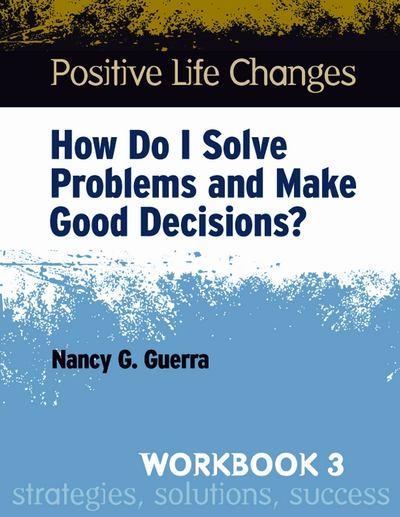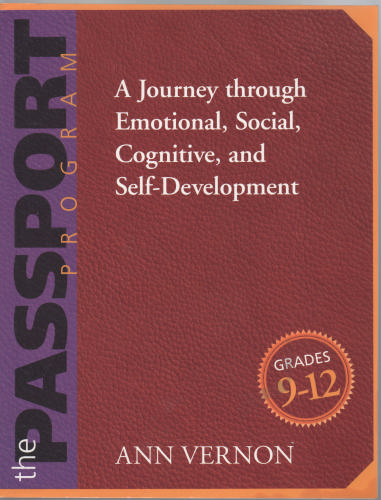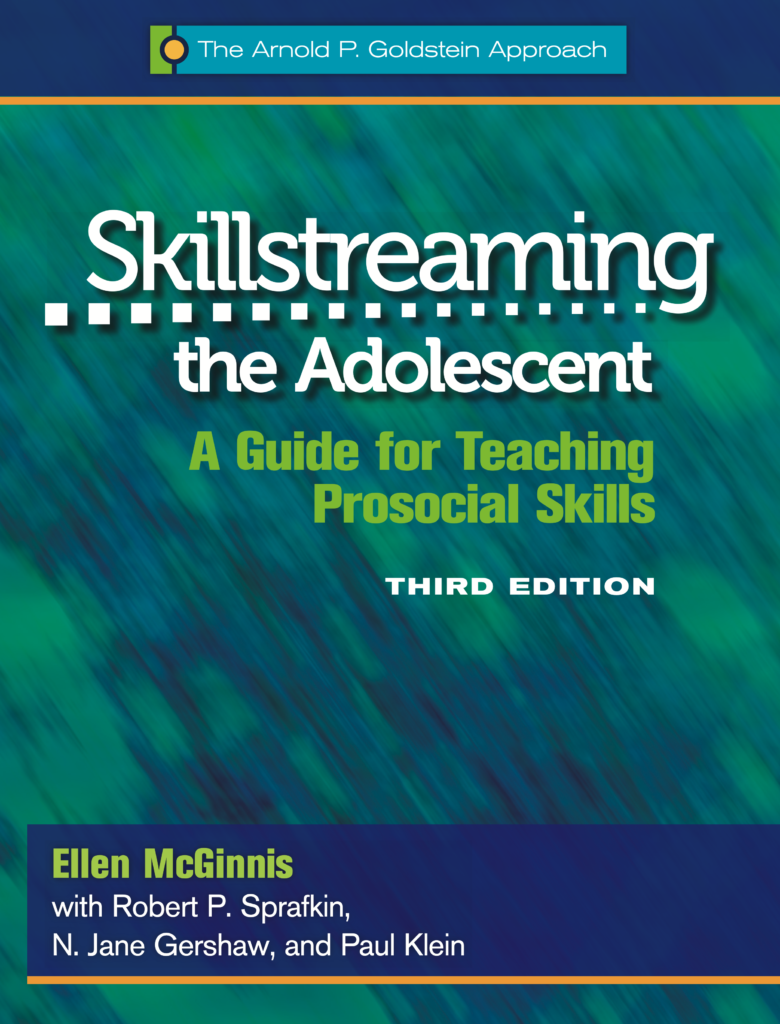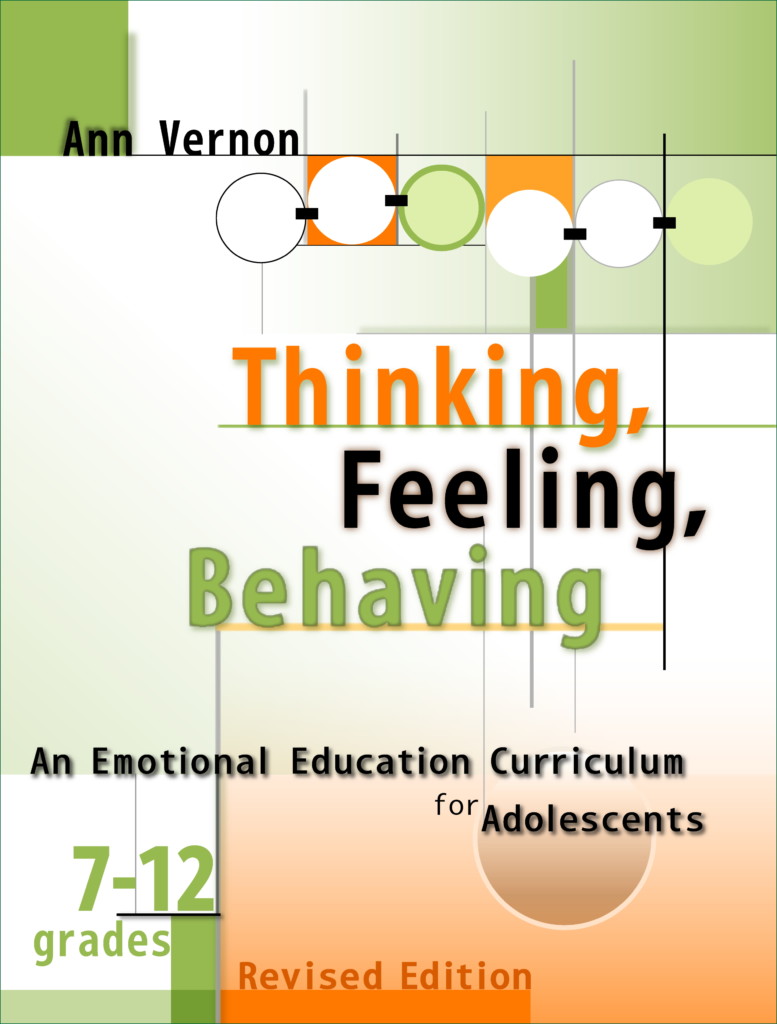Provides group leaders with detailed instructions and implementation guidelines.
The guide addresses the information presented in the three separate participant workbooks (described below). Each workbook contains 10 lessons providing a life skills curriculum in which participants learn to examine how they think, develop more effective decision-making skills, and apply these skills to their daily lives.
Lessons are primarily designed to be conducted in small group sessions, but can also be accomplished individually or with the assistance of a mentor or counselor.
Resource Review
“School psychologists are always looking for new, research-based interventions and programs. . . . By teaching students empathy, the importance of belonging to positive social groups, and other skills, Positive Life Changes enhances social skills and life competencies. . . . The assessment materials included with the program allow data-based decisions to be made about the intervention and the individuals in the program.”
—Amanda Pike, MSPA Newsletter
Minnesota School Psychologists Association
The Positive Life Changes program uses a strengths-based approach with a sound theoretical foundation. The program components are based on the identification of five core competencies that have been linked empirically to healthy development and prevention of multiple adolescent problem behaviors:
- Positive Sense of Self
- Self Control
- Social Problem-Solving and Decision-Making Skills
- Moral System of Belief
- Prosocial Connectedness
Workbook 1 emphasizes positive sense of self and self control.
Workbook 2 emphasizes moral system of belief and prosocial connectedness.
Workbook 3 emphasizes problem solving and decision-making skills.
These relations have been documented in the author’s recent edited volume in New Directions in Child and Adolescent Development: Guerra, N. G., & Bradshaw, C. (Eds., 2008). Core competencies to prevent problem behaviors and promote positive youth development. New Directions in Child and Adolescent Development, 122. San Francisco, CA: Jossey-Bass.
In addition, Workbook 3 is based on a previous publication, Viewpoints: A Guide to Conflict Resolution and Decision-Making for Adolescents, which has outcome data from earlier studies:
Guerra, N. G. & Slaby, R. G. (1990). Cognitive mediators of aggression in adolescent offenders: II. Intervention. Developmental Psychology, 26, 269-277.
Conducting Lessons
Each workbook in the series follows a logical sequence, and leaders are encouraged to teach the lessons in the order presented. It is recommended that leaders go through all of the activities in each lesson if time and participant readiness allow. In some settings, however, it may be necessary to shorten the overall length of the program (for instance, in brief detention settings where individuals are in residence for 5 to 10 days). The recommended procedure is to begin with Lesson 1, provide guidance during the participant’s available time, and encourage the participant to complete any unfinished lessons with a mentor or counselor at a later time.
Each lesson requires approximately one hour; however, the time needed to cover the material will vary depending on the age and abilities of participants and their level of engagement. Lessons may be presented in shorter, more frequent sessions if necessary.
As previously noted, the activities provided in each workbook involve both reading and writing. If participants’ reading skills are good, you can ask them to read the text and scenarios provided silently, then discuss. To accommodate those with limited reading ability, you can ask for volunteers to read aloud or read the material aloud yourself. You could also begin lessons by reading scenarios aloud and inviting group participants to take over the reading at any point. To make sure all participants feel comfortable, you will need to remain sensitive to the range of reading abilities in the group.
Although the workbooks include the opportunity for participants to do a fair amount of writing, content is readily adapted to fit the needs of participants whose writing skills are not strong. The program will be more effective if participants are able at least to jot down some ideas for discussion, even if writing long responses is impractical. One benefit of writing is that, at the end of the program, participants will have a record of responses that can help them remember what they have learned. Participants who cannot or will not write their answers can be encouraged to doodle or draw a picture to capture their answers, and some activities specifically offer a drawing alternative.
Core Competencies
Core competencies represent key social and emotional skills that increase the chance of healthy adjustment and decrease the chance of problem behaviors such as violence, substance use, and high-risk sexual behavior. The three workbooks in the Positive Life Changes series weave together lessons addressing five core competencies for adolescents and young adults, as follows:
- Positive Sense of Self: Self-awareness, self-esteem, and self-efficacy (a belief in one’s ability to influence outcomes)
- Self-Control: Emotional and behavioral regulation needed to resist temptation and control reactive behavior
- Moral System of Belief: Concern for fairness, justice, integrity, responsibility, and the welfare of others (including empathy)
- Prosocial Connectedness: A psychological state of belonging in which youth perceive they are cared for, acknowledged, and trusted within a given context
- Decision-Making Skills: The ability to identify problems and relevant information, set goals, generate solutions, and evaluate consequences in problematic social situations (also called social problem solving skills)
These five competencies are interconnected (for instance, higher levels of self-control lead to better decision making), but each area is important in its own right, and the emphasis of each workbook is distinct. A few activities build on those presented in previous workbooks. For instance, thinking about the impact of one’s actions on others is emphasized in Workbook 2 as well as Workbook 3. If participants will be using more than one part of the program, the workbooks should be done in sequence.
This competency-based approach is closely aligned with assets and strengths included in both positive youth development and evidence-based prevention programs, including the work of the Search Institute, Outward Bound, and mentoring programs. The underlying premise, supported by extensive research (see Guerra & Bradshaw, 2008, for example), is that youth will behave more responsibly (which includes using positive behavior and avoiding risky behaviors) if they clearly understand their strengths, know how to access social support, learn to set positive goals for themselves, understand the consequences of their actions for themselves and others, and deal effectively with conflicts and problems that occur in their daily lives.

